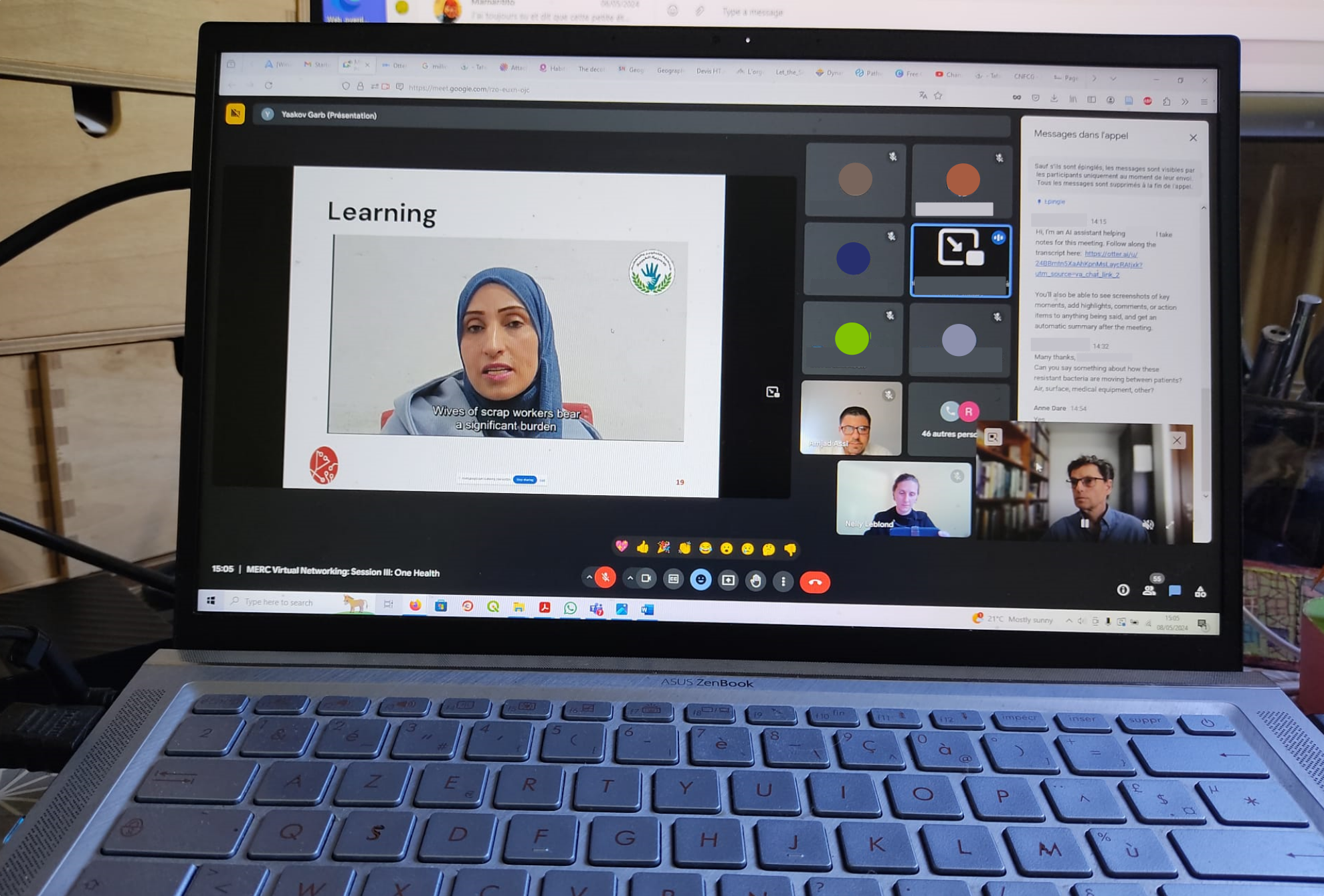In April and May 2024, the USAID/MERC team organized a series of networking events amongst researchers conducting innovative Research in the Middle East. Our team was fortunate enough to be amongst the presenters! 🙌
The sessions included the following topics:
- Unlocking the potential of marginal resources
- Converting waste: from burden to value
- Connecting human and environmental health
- Leveraging agricultural science for resilience
Given our focus on electronic waste recycling and its impacts in Israel/Palestine, we were of course included in Session 3. This session included fascinating research such as:
- 🔎 antimicrobial resistance in Israeli and Palestinian Hospitals – which occurs when bacteria no longer react to antibiotics – and several measures experimented to reduce this phenomenon;
- 🔎 exposure of wildlife to rodenticides and the pathways that enable these toxic substances to travel beyond the targeted rodents;
- 🔎 the origins, challenges, and promising options to deal with the Botryosphaeria disease – a fungus damaging mango trees and fruits.
- 🔎 And of course, OUR PRESENTATION ON what we could call the electronic waste socio-exposome – the various exposure pathways induced by e-waste contaminants which affect inhabitants and environments, as well as the protective measures and interventions that can support healthy communities.
Our team presentation, led by Prof. Garb, put the focus on burn site mapping activities – especially the GIS capacity built with MERC support within Tatweer, which enabled to map over 3,000 burn sites for the 2012-2023 period, and to locate key sources of exposure to lead.

We also mentioned our ongoing sampling campaign into food chain exposure. Despite the war and the closure, the samples were carefully collected, labelled, and packed, and are now ready for the careful analysis. The Tatweer team sampled all along the olive sector – from the groves to the olive press and the pickled jars. Our samples are now awaiting in leading European labs, with whom we are in close dialogue to combine the best exploratory as well as targeted analysis of the potential impacts of this unique form of contamination to an important regional source of food and livelihood.






And last but not least, we insisted on the richness and strategies underlying a community grounded approach. Prof. Garb’s talk was interwoven with pre-recorded presentations by of Sarah Awawdeh’s, in which they mutually illustrated how researchers can learn from inhabitants’ observations, allowing our team to co-create innovate research methods and results.
The event’s meetings were not recorded, but the presentation from which Sarah’s comments were taken can be seen here and below 👇. If you are wondering why and how to engage with community-based organisations, this 10-minute watch is worth your time!
We are more than grateful that USAID/MERC organized these sessions, offered us an opportunity to present and engage around our work, and enabled us to meet fascinating colleagues. Researching in the Middle East is more than challenging. But the work being done is inspiring and we are thankful to all those that are making it possible – in the Middle East and beyond. 🙏🙏🙏
